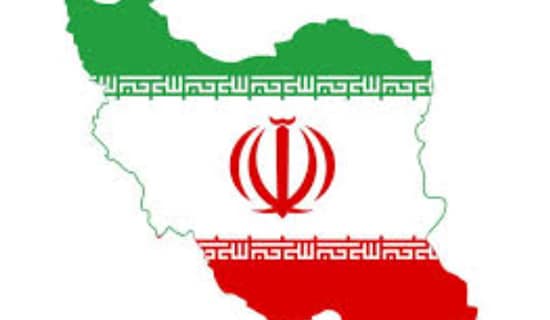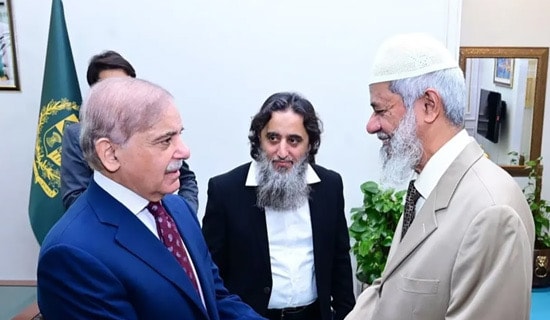In an article posted on the website of the Qatari TV channel Al-Jazeera, former Knesset member 'Azmi Bishara wrote in favor of continuing the Palestinian struggle by all means, including armed resistance. He also called to refrain from any bargaining over the Right of Return, and argued that the only possible solution to the Palestinian-Israeli conflict is the establishment of a single state based on the principle of equal citizenship, which will be part of the Arab homeland.
Following are excerpts from the column:
"One Cannot Believe in Liberation and Social Justice … without Deciding [Once and For All] between Resistance and Cooperation with the Occupation"
"The Arab countries have stopped all resistance operations [launched] from their territory since they discarded the option of war and joined the negotiations with Israel, which are sometimes referred to optimistically as the peace process... They were joined [in this policy] by the Palestinian leadership, which has become (or aspires to become) [the leadership of] another Arab state. Since then, the concept of 'national liberation' has disappeared, and the Arabs have split into two camps: those in favor of a political [solution] and those in favor of resistance – a division hitherto unfamiliar to us...
"One cannot believe in liberation and social justice, or be a nationalist, without deciding [once and for all] between resistance and cooperation with the occupation. As the gap between resistance and non-resistance widens, nationalists find that the room for maneuvering between the two options becomes narrower. 'Nationalism' is not a slogan, a cliché, or a trend that has gone of fashion. It is not [synonymous with] extremism or with the ideological movement of pan-Arabism. It is a necessary condition for the survival of a proper society, with institutions [that truly serve] the people, a natural economy, manufacture and manufacturers, education and culture, values and morality. [United by] nationalism, we divide into democrats, liberals, and fundamentalists. But without it, we completely fall apart, becoming packs of wolves or [groups of] orphans...
"That is why I cannot understand the nationalists who [stand] perplexed [when called upon to] decide between resistance, regardless of its nature, and cooperation with the occupation. Surrendering a young fighter to the occupation – no matter what his motivations are, or the motivations of the one who turns him in – [is an act that] stirs up our national sentiments, and forces us to decide between [the two options]..."
Once, "Giving the Enemy Information about Our Fighters Was Not Called 'Military Coordination'"
"In practice, it is possible to continue the struggle without exhausting the people and forcing them to accept concessions as an unavoidable move. Even those who have endorsed pragmatism as an ideology must realize that by waiving [our] inalienable rights, they have not prompted concessions on Israel's part that will lead to the realization of the Palestinians' rights. [These rights have been waived] in return for the promise of a more comfortable life under the occupation. We used to have a name for those who traded our national goals for a better life under the occupation. Back then, giving the enemy information about our fighters was not called 'military coordination.' It's a good idea to recall how we used to refer to a person or a group of people who met with officers of the occupation in order to discuss how to foil a [self-]sacrifice operation or surrender wanted [individuals], or in order to disclose their locations. We certainly did not call such deeds 'military coordination.'
"When these deeds are carried out by an official leadership that is recognized by the international community and has [executive] powers, the offense if [doubly] severe, and no amount of whitewashing will hide it. This situation disintegrates the Palestinian society, including its educated elites, [in the name of] a realism that is not realism and a consumerism that has nothing to do with production or [economic] growth, but only with selling our national rights, culture and history...
"Those who have begun to refer to the 1967 territories as [all of] Palestine have relinquished not only their history, but also the present of the Palestinian diaspora, of Jerusalem, and of Palestine that was occupied in 1948, as well as the connection between the West Bank and Gaza...
"Resistance takes place on all fronts and by all means – from armed struggle to educational and cultural activity, activity by workers' unions, and [efforts to impact] public opinion in the world and in Israel. The national struggle is an comprehensive struggle. [True, it includes] periods of hudna and is accompanied by negotiations and diplomatic talks, but we must not propose negotiation as an alternative to the struggle before attaining our rights. When we put down the weapons of struggle and relinquish the strategy of comprehensive struggle, we [begin to] negotiate our rights [themselves] instead of [the way to] realize them. The condition for negotiating a permanent [solution] with an occupying power is a recognition on the part [of this power] that the occupation [must] end, and a desire to end it in an orderly fashion and to negotiate the manner in which it is to end. But the talks between the Palestinian Authority and Israel are not about dismantling Zionism and the occupation, but about dismantling Palestinian history and geography. Thus, they constitute a living example of how struggle and negotiation are incompatible when one discards the struggle before attaining one's goals..."
The Right of Return Is Non-Negotiable; The Solution Is One Single State
"We must uphold our inalienable rights that are non-negotiable, such as the right of return, an end to the occupation, and the Arabness of Jerusalem... [However,] we all know that adhering [to these principles] will sabotage any settlement, [for] Israel will not agree to a settlement on these terms. [Therefore,] sooner or later we will have to propose a broader vision for the struggle, by uniting hundreds of local Palestinian political initiatives that emerged without [seeking] anyone's permission when the Palestinian Authority [began to] marginalize the PLO. We must bring together hundreds of initiatives by youth, students and various local Palestinian committees, [and unite them] into one political framework that stands for [two main principles]: the refusal to give up our permanent, non-negotiable rights, and [the realization that] there is no way to reach a just settlement between two different political entities in two states.
"The two-state solution means [perpetuating] today's distorted reality, perhaps with a few small changes, in the best-case scenario. The only vision of liberation that can be championed by our generation and the generations to come is that all the residents of Palestine become equal citizens in a single state. For this to happen, this state must be based on [the principle of] equal democratic citizenship. The dismantling of Zionism is a condition for realizing this [sort of] citizenship, and democratic Palestine will be part of a larger domain, namely the Arab homeland.
"The alternative to this just solution, in the long run, is not the two-state solution, which is being implemented before our eyes. The peoples of the region (as opposed to its regimes) will regard this entity [i.e., Israel after the implementation of the two-state solution] as a new Crusader state that will vanish sooner or later. This realization reveals the one-state solution in Palestine for what it truly is: a just solution, not a radical slogan."




